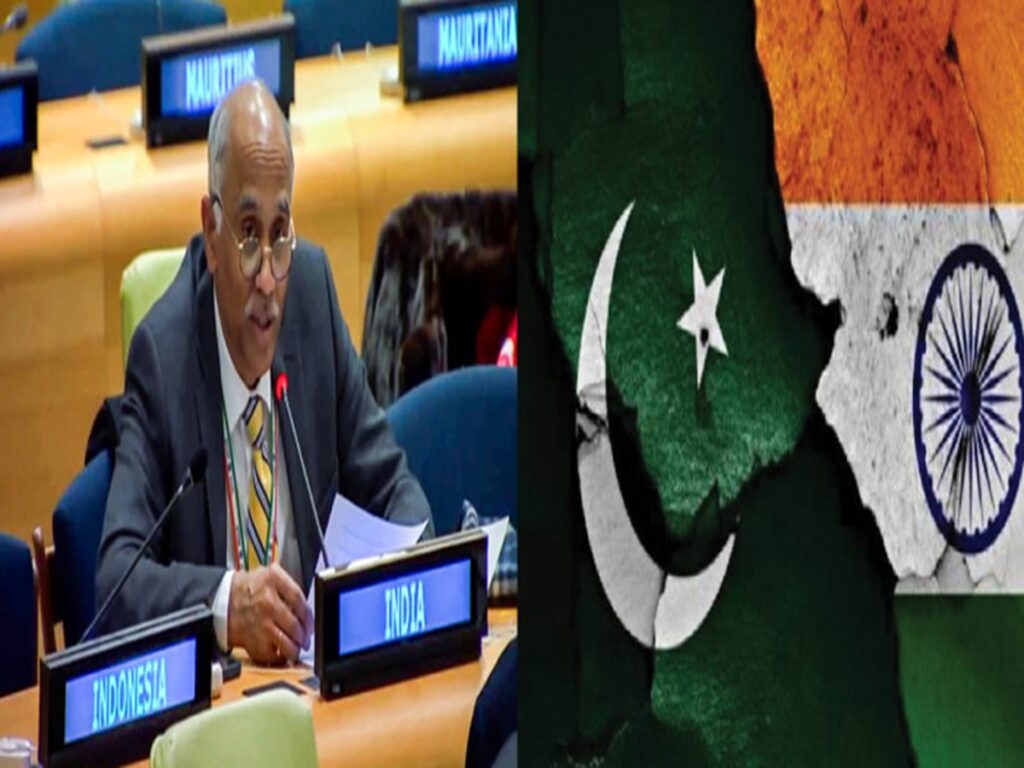Tensions at the UN
New Delhi: India has sharply rebuked Pakistan at the United Nations after Islamabad tried to stir controversy over the Indus Waters Treaty. India’s Permanent Representative to the UN, Ambassador Parvathaneni Harish, made it clear that the 65-year-old pact would remain suspended until Pakistan ends its support for terrorism. Pakistan’s representative had earlier claimed at the UN that “water is life, not a weapon of war,” but India firmly countered this narrative.
20,000 Indian Lives Lost to Terror
Ambassador Harish underscored that over 20,000 Indians have been killed in terror attacks over the past four decades. Despite this, India has acted with “extraordinary patience and magnanimity,” he said, stressing that Pakistan’s state-sponsored terror has threatened civilian lives, religious harmony, and economic growth.
Treaty Violations and Obstruction
Highlighting four critical points, Mr Harish stated that Pakistan has consistently violated the spirit of the Indus Waters Treaty through wars and terror. He noted that India had proposed several discussions on modernizing dam infrastructure and ensuring safety, but Pakistan consistently blocked any modifications, even though these are permissible under the treaty. Terror attacks, including the 2012 strike on the Tulbul navigation project, continue to threaten the safety of these crucial water projects.
Indus Waters Treaty Suspension
In the wake of the Pahalgam terror attack last month that killed 26 people and was linked to cross-border elements, India suspended the Indus Waters Treaty on April 23. The move was part of a broader push to hold Pakistan accountable for cross-border terrorism, with Ambassador Harish stating clearly that the treaty will stay in abeyance until Pakistan credibly and irrevocably ends its support for such activities.
Escalation After Pahalgam Attack
Following the Pahalgam incident, India launched “Operation Sindoor” on May 7, targeting terror camps in Pakistan and Pakistan-occupied Kashmir. Pakistan retaliated with missile and drone attacks, but India thwarted these threats and struck Pakistani airfields in response. The brief but intense hostilities ended with a ceasefire on May 10.


